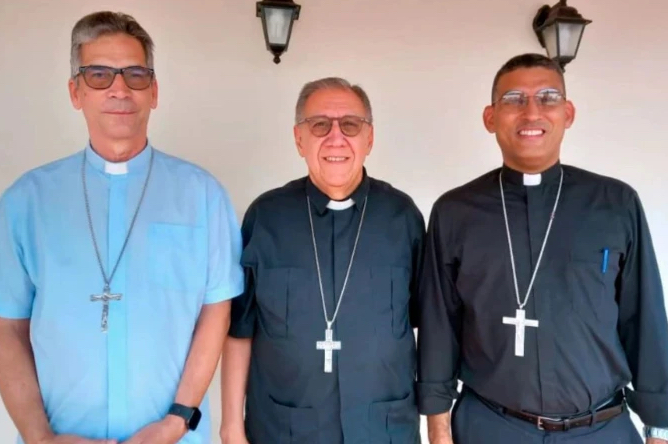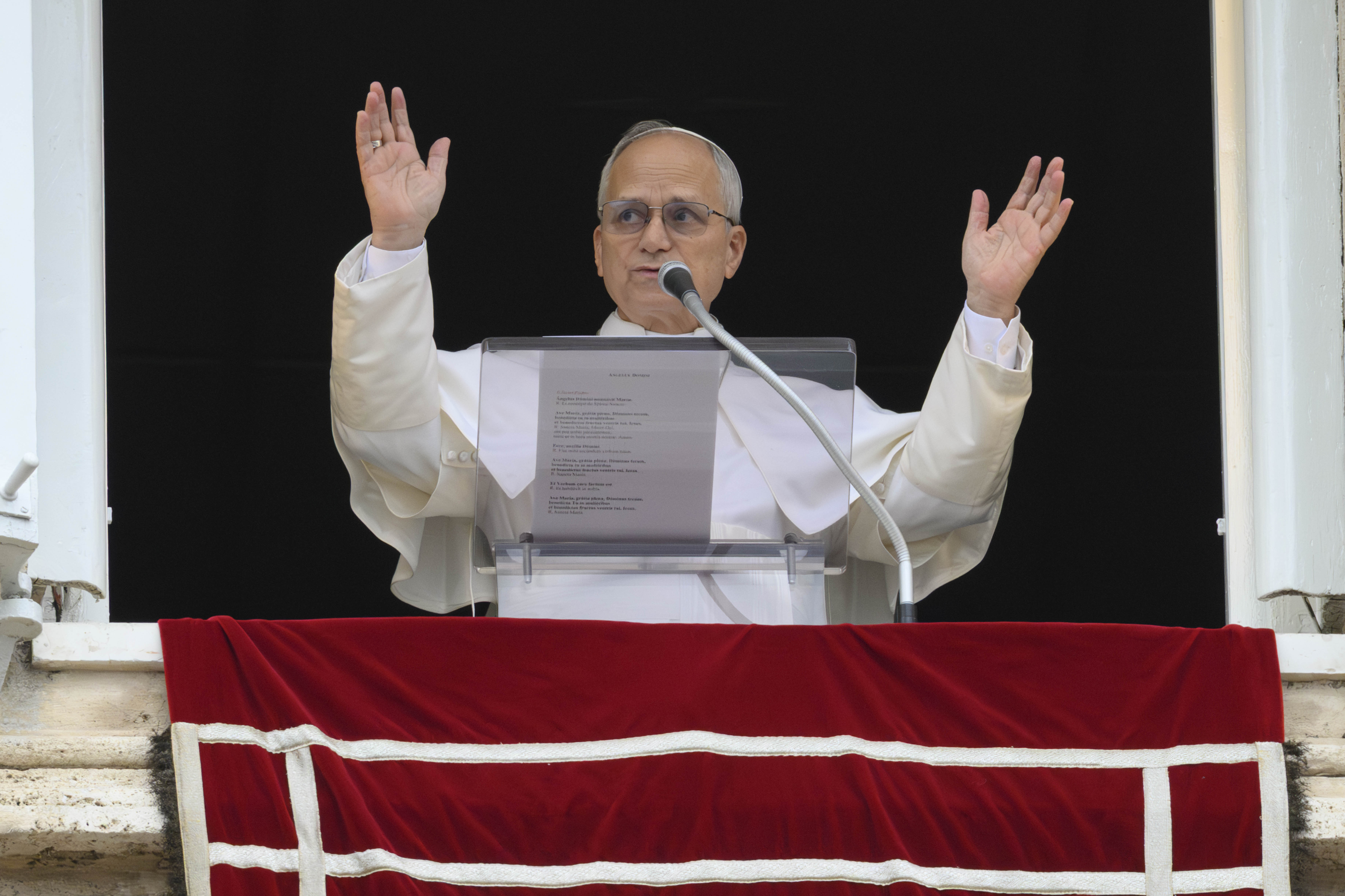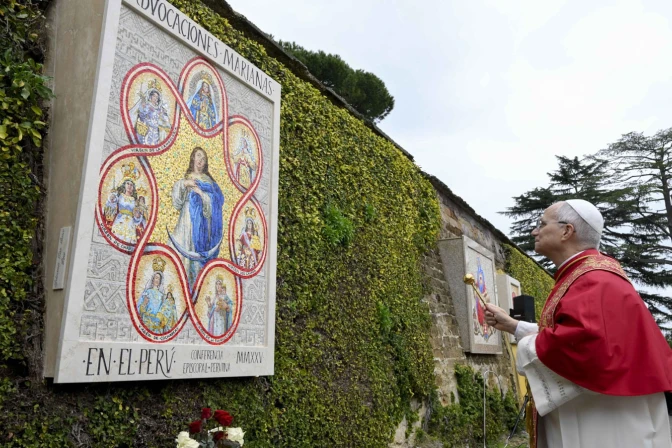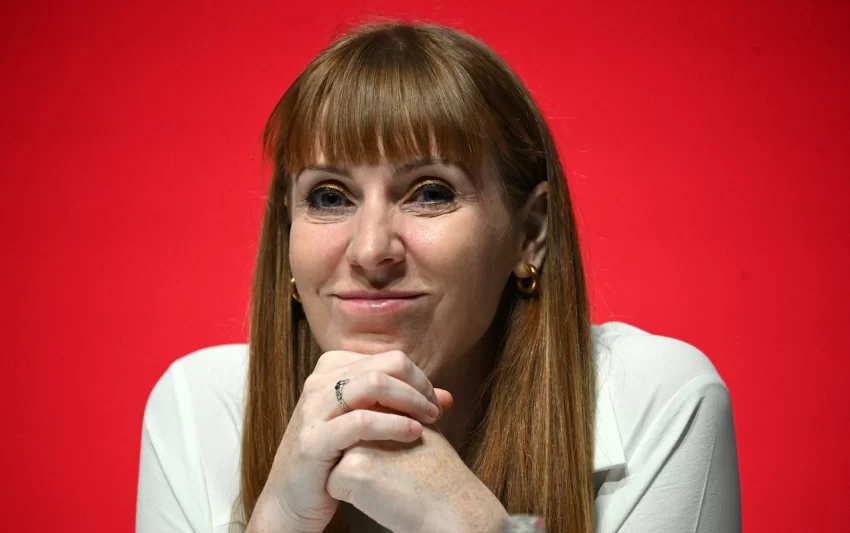Trump gauges Europe’s reaction to Putin’s ceasefire offer
The Trump administration is privately gauging European allies’ reactions to a possible ceasefire proposal with Russia after special envoy Steve Witkoff relayed Russian President Vladimir Putin’s demands for a deal, according to a White House official and a European helping facilitate talks with the administration.
Witkoff returned from a meeting with Putin this week and told President Donald Trump that the Russian president had presented the terms under which Russia would agree to stop hostilities in Ukraine, the White House official said.
The official declined to describe Russia’s terms, but Trump said Friday that land swaps between Russia and Ukraine are under discussion.
“It’s complicated,” Trump said Friday in the Oval Office. “There’ll be some swapping of territories to the betterment of both, but we’ll be talking about that either later or tomorrow.”
In the past Putin has made maximalist demands such as controlling territory in areas it did not take militarily, which Ukraine has rejected out of hand.
Despite that, the Trump administration is moving ahead with plans for a summit next Friday in Alaska between Trump and Putin. It would be the first time an American president has met with Putin since Russia invaded Ukraine in early 2022.
“It does not mean a deal or a truce has been agreed upon,” said the White House official, granted anonymity to share the administration’s thinking. “The president is discussing it with all the relevant parties.”
Trump said he does believe Putin wants peace and is prepared to at least hear him out, even as last month he bemoaned the Russian president’s propensity to spout “bullshit.”
On Friday, however, Trump sounded more optimistic.
“My instinct really tells me that we have a shot at it, okay, and you’ll find that out later on, and maybe even today, but we have a shot at it,” Trump said. “Look, it’s got to be solved.”
His overture is the latest in a monthslong White House effort to end the war between Russia and Ukraine, an oft-repeated campaign pledge. U.S. emissaries have met with Russian officials several times, but there has been little progress toward concluding the more than three-year war and some of the most intense Russian assaults have taken place over the last few months.
That has spurred tougher rhetoric from a clearly frustrated Trump who has threatened new sanctions on Russia as well as higher tariffs on countries like India that help keep Putin’s war machine funded by buying Russian oil. Trump also allowed European allies to purchase American weapons for use in the battlefield in Ukraine and the U.S. has begun sending that assistance.
Trump had set Friday as a deadline for Putin to agree to an immediate ceasefire in Ukraine, or face the new, aggressive sanctions. But Trump declined to say whether he is making good on his threat or allowing Putin a little more time now that a meeting has been agreed upon.
“We’ll have some more information for you a little bit later,” Trump said Friday afternoon.
European allies have welcomed Trump’s gradual moves to crack down on Russia but are watching the latest diplomacy warily, hoping Trump will capitalize on the opportunity to seek concessions from Moscow.
A senior European official granted anonymity to discuss sensitive diplomacy, attributed Putin’s willingness to meet Trump to joint pressure from Washington and its allies and said that Europe hopes Trump’s tougher tactics will continue.
“There is finally some movement on Putin’s part and it is thanks to Trump allowing weapons deliveries and taking steps on sanctions,” the senior official said. “This shows Putin does respond to serious pressure. Now we just have to apply more pressure to better results.”
Putin has long sought a meeting with Trump since his return to office and it would be a major victory for Putin to get one absent any meaningful compromises, or without Ukrainian President Volodymyr Zelenskyy. Trump has said he will meet Putin whether or not he agrees to see Zelenskyy. Putin has declined the White House’s many calls to meet Zelenskyy, which the U.S. sees as key to ending the war.
“It’s really the Kremlin that is interested in this, and Putin wants it to get back into the big game, and that gives Trump leverage,” said William Taylor, former U.S. Ambassador to Ukraine now at the Atlantic Council.
The president doesn’t view a meeting with Putin as a concession, but does care about the perception of whatever agreement is ultimately reached, said Victoria Coates, a deputy national security adviser in Trump’s first administration.
“Trump wants a good deal,” she said. “He’s not going to want to be criticized for having handed the farm to Putin.”
Clea Caulcutt and Esther Webber contributed to this report.




















:quality(85):upscale()/2023/09/18/918/n/1922398/a1136b676508baddc752f5.20098216_.jpg)
:quality(85):upscale()/2025/10/09/670/n/1922283/00b944c868e7cf4f7b79b3.95741067_.jpg)
:quality(85):upscale()/2025/10/15/765/n/1922398/29c37a6e68efd84bb02f35.49541188_.jpg)
:quality(85):upscale()/2025/09/09/891/n/1922283/7222624268c08ccba1c9a3.01436482_.png)
















